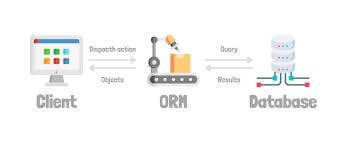As a developer, I have witnessed the evolution of data access and its impact on modern development paradigms. In this article, I will delve into the revolutionary Prisma ORM, exploring its key features, capabilities, and its profound influence on modern web development. From understanding the basics of Prisma to unlocking its potential for real-time applications and scalability, this comprehensive guide aims to highlight the pivotal role of Prisma in shaping the future of data access for developers.
The Evolution of Data Access for Modern Developers
In the early days of web development, data access was primarily facilitated through raw SQL queries and manual database interactions. Developers were tasked with managing database connections, writing complex SQL statements, and handling data mapping to application objects. This approach often led to cumbersome code, increased development time, and reduced productivity. As the demand for modern, scalable, and efficient applications grew, the need for a more streamlined and intuitive data access solution became apparent.

The emergence of Object-Relational Mapping (ORM) frameworks revolutionized data access by providing developers with a higher level of abstraction for interacting with databases. The ability to map database entities to application objects and perform CRUD operations using familiar programming constructs significantly enhanced developer productivity. However, traditional ORM frameworks often suffer from performance limitations, complex configuration, and lack of support for modern data modelling paradigms.
Understanding the Prisma ORM
Prisma, a modern ORM for Node.js and TypeScript, has redefined the way developers interact with databases. At its core, Prisma leverages the power of TypeScript and GraphQL to offer a type-safe and intuitive approach to data access.
By utilizing Prisma Client, developers can seamlessly perform database operations without writing raw SQL queries, while benefiting from strong type-checking and autocompletion capabilities. This not only eliminates the risk of runtime errors but also promotes code maintainability and scalability.
For example, to fetch a list of users from a PostgreSQL database, you can use Prisma Client as follows:
// Import PrismaClient
import { PrismaClient } from '@prisma/client'
// Instantiate PrismaClient
const prisma = new PrismaClient()
// Define an async function to fetch users
async function getUsers() {
// Use Prisma Client to query the database
const users = await prisma.user.findMany()
// Return the users
return users
}
Notice how Prisma Client provides a fluent and expressive API to query the database, without requiring any SQL syntax. Moreover, Prisma Client automatically infers the types of users based on the database schema, which means you can access the user properties with full type safety and auto-completion support.
// Call the getUsers function
getUsers().then((users) => {
// Loop through the users
users.forEach((user) => {
// Access the user properties with type safety and autocompletion
console.log(user.id, user.name, user.email)
})
})
Furthermore, Prisma introduces a declarative data modelling language that allows developers to define the database schema using a simple and intuitive syntax. This approach not only streamlines the process of data modelling but also ensures consistency between the application’s data access layer and the underlying database structure. With support for multiple databases, including PostgreSQL, MySQL, and SQLite, Prisma empowers developers to work with their preferred database systems without compromising productivity or performance.
For example, to define a User model with three fields: id, name, and email, you can use Prisma Schema as follows:
// Define a User model
model User {
// Define an id field of type Int
id Int @id @default(autoincrement())
// Define a name field of type String
name String
// Define an email field of type String
email String @unique
}
# Generate the database migration scripts
npx prisma migrate dev
# Generate the Prisma Client code
npx prisma generate
Prisma is a powerful and innovative ORM that simplifies and enhances the developer experience when working with databases. By using Prisma, you can enjoy the benefits of type safety, code generation, and database abstraction, while building scalable and performant applications with Node.js and TypeScript.
Key Features and Capabilities of Prisma
Prisma Schema: a declarative data modelling language that enables developers to define database models, relationships, and constraints using a concise and expressive syntax. This approach simplifies the process of defining complex database schemas and provides a single source of truth for the application’s data layer.
Prisma Client: an auto-generated query builder that offers a seamless and type-safe API for performing CRUD operations, complex queries, and data validations. By leveraging the power of TypeScript, Prisma Client ensures that developers can work with strongly typed data models, thereby eliminating the risk of runtime errors and data inconsistencies.
Prisma Migrate: a tool that facilitates database schema migrations with support for version control, data seeding, and automatic schema generation. Prisma Migrate empowers developers to evolve their database schema alongside their application code.
Prisma and Database Integration

One of the hallmark features of Prisma is its seamless integration with a wide range of databases. Whether you are working with a relational database such as PostgreSQL or a lightweight database like SQLite, Prisma offers native support for various database systems. This level of flexibility allows developers to choose the right database for their application without being constrained by the limitations of the ORM framework.
For example, to connect to a PostgreSQL database, you can specify the database URL in the Prisma Schema file as follows:
// Specify the database URL
datasource db {
provider = "postgresql"
url = env("DATABASE_URL")
}
To connect to a SQLite database, you can simply change the provider and the URL accordingly:
// Specify the database URL
datasource db {
provider = "sqlite"
url = "file:./dev.db"
}
Prisma’s integration with databases extends to its support for advanced database features such as transactions, data validations, and query optimizations. With Prisma, developers can harness the full potential of their chosen database system while benefiting from a unified and consistent data access layer. This not only simplifies the process of working with databases but also ensures that developers can focus on building robust and scalable applications without being encumbered by database intricacies.
Enhancing Developer Productivity with Prisma
Prisma is a powerful ORM that boosts developer productivity by abstracting the complexities of database access and providing a type-safe and intuitive API. With Prisma, developers can focus on building innovative features and business logic, rather than dealing with low-level database operations and queries.
Prisma also integrates seamlessly with modern development tools and frameworks, including GraphQL and NestJS, which further enhances its ability to streamline the development workflow. By using Prisma, developers can leverage code generation to automatically generate database models, client APIs, and migration scripts, thereby reducing the burden of manual code maintenance.
Additionally, Prisma’s support for data validation, error handling, and asynchronous queries ensures that developers can write robust and efficient data access code without compromising on code quality or performance. This level of productivity enhancement enables developers to iterate rapidly, collaborate effectively, and deliver high-quality applications within tight deadlines.
Optimizing Performance with Prisma
In the realm of modern web development, performance is a critical factor that directly impacts the user experience and overall application scalability. Prisma’s approach to performance optimization revolves around its ability to generate efficient and optimized database queries while leveraging the underlying database system’s native features. By utilizing query batching, connection pooling, and automatic query optimization, Prisma minimizes the overhead of database interactions and maximizes the throughput of data access operations.
Furthermore, Prisma’s support for reactive programming and real-time data access enables developers to build responsive and interactive applications that can handle a high volume of concurrent users. Whether it’s implementing real-time chat applications, collaborative editing platforms, or live dashboard updates, Prisma’s reactive capabilities unlock new opportunities for building dynamic and scalable applications. This level of performance optimization is instrumental in meeting the demands of modern web applications and ensuring a seamless user experience across diverse use cases.
Prisma Best Practices and ORM Tips
To harness the full potential of Prisma, developers should adhere to best practices and leverage advanced ORM tips to optimize their data access workflows.
- Embrace a modular and schema-centric approach to data modelling: Prisma allows you to split your schema file into multiple files and import them using the
includekeyword. This helps you to organize your schema file into logical modules and avoid duplication. For example, you can create a file calleduser.prismathat contains the User model and import it into the main schema file as follows:
// Import the user.prisma file
include "./user.prisma"
// Define other models or settings
...
- Utilize Prisma’s built-in query API for complex data operations: Prisma offers a rich and expressive query API that allows you to perform complex data operations with ease. For example, you can use the
groupByoption to aggregate data by multiple fields, theorderByoption to sort data by multiple criteria, and thewhereoption to filter data by multiple conditions. For example, you can use Prisma Client to query the average rating and the number of reviews for each product category, sorted by the highest rating and the most reviews, as follows:
// Import PrismaClient
import { PrismaClient } from '@prisma/client'
// Instantiate PrismaClient
const prisma = new PrismaClient()
// Define an async function to query the data
async function queryData() {
// Use Prisma Client's groupBy option to aggregate data by category
const data = await prisma.product.groupBy({
// Specify the fields to group by
by: ['category'],
// Specify the fields to aggregate
_avg: {
rating: true,
},
_count: {
reviews: true,
},
// Specify the fields to sort by
orderBy: [
{
_avg: {
rating: 'desc',
},
},
{
_count: {
reviews: 'desc',
},
},
],
})
// Return the data
return data
}
- Employ schema validation techniques: Prisma Schema offers various ways to validate your schema file and catch any errors or inconsistencies before applying it to the database. For example, you can use the
npx prisma validatecommand to check the syntax and semantics of your schema file, thenpx prisma formatcommand to format your schema file according to the Prisma style guide, and thenpx prisma db pullcommand to update your schema file based on the current state of the database. These commands help you to ensure the validity and consistency of your schema file and avoid any potential issues or conflicts.
Real-time Applications and Scalability with Prisma

The demand for real-time applications and scalable data access solutions has propelled Prisma to the forefront of modern development paradigms. With its support for reactive programming, event-driven architectures, and real-time data synchronization, Prisma enables developers to build applications that can handle dynamic and interactive user experiences. Whether it’s implementing live data updates, collaborative features, or interactive dashboards, Prisma’s real-time capabilities unlock new possibilities for engaging and responsive applications.
Conclusion and Future of Data Access with Prisma
In conclusion, the Prisma ORM has emerged as a transformative force in modern data access and web development. Its intuitive approach to database integration, type-safe data modelling, and performance optimization has redefined the way developers interact with databases and build scalable applications. As the future of data access continues to evolve, Prisma is poised to play a pivotal role in shaping the next generation of web applications, real-time services, and distributed systems.
As developers embrace the power of Prisma, the boundaries of data access and ORM paradigms will continue to be pushed, leading to new innovations in data modelling, query optimization, and real-time data synchronization. With its unwavering commitment to developer productivity, code correctness, and performance efficiency, Prisma stands as a testament to the ongoing evolution of data access for modern developers. As we look towards the future, it’s clear that Prisma’s influence will extend beyond its current capabilities, paving the way for a new era of data-driven, scalable, and responsive applications.
Thank you for reading! If you have any feedback or notice any mistakes, please feel free to leave a comment below. I’m always looking to improve my writing and value any suggestions you may have. If you’re interested in working together or have any further questions, please don’t hesitate to reach out to me at fa1319673@gmail.com.